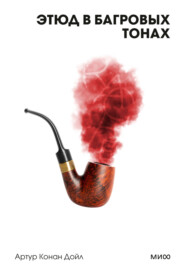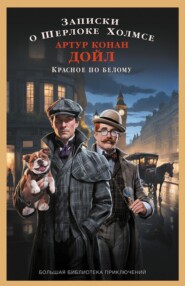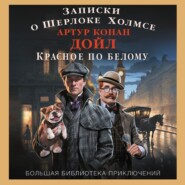По всем вопросам обращайтесь на: info@litportal.ru
(©) 2003-2025.
✖
The Tragedy of The Korosko
Настройки чтения
Размер шрифта
Высота строк
Поля
"Oh, when I am miserable, I am just too miserable for words. I've sat and cried for days and days at Smith's College, and the other girls were just crazy to know what I was crying about, and guessing what the reason was that I wouldn't tell them, when all the time the real true reason was that I didn't know myself. You know how it comes like a great dark shadow over you, and you don't know why or wherefore, but you've just got to settle down to it and be miserable."
"But you never had any real cause?"
"No, Mr. Stephens, I've had such a good time all my life that I really don't think, when I look back, that I ever had any real cause for sorrow."
"Well, Miss Sadie, I hope with all my heart that you will be able to say the same when you are the same age as your aunt. Surely I hear her calling."
"I wish, Mr. Stephens, you would strike my donkey-boy with your whip if he hits the donkey again," cried Miss Adams, jogging up on a high, raw-boned beast. "Hi, dragoman, Mansoor, you tell this boy that I won't have the animals ill used, and that he ought to be ashamed of himself. Yes, you little rascal, you ought! He's grinning at me like an advertisement for a tooth paste. Do you think, Mr. Stephens, that if I were to knit that black soldier a pair of woollen stockings he would be allowed to wear them? The poor creature has bandages round his legs."
"Those are his putties, Miss Adams," said Colonel Cochrane, looking back at her. "We have found in India that they are the best support to the leg in marching. They are very much better than any stocking."
"Well, you don't say! They remind me mostly of a sick horse. But it's elegant to have the soldiers with us, though Monsieur Fardet tells me there's nothing for us to be scared about."
"That is only my opinion, Miss Adams," said the Frenchman hastily. "It may be that Colonel Cochrane thinks otherwise."
"It is Monsieur Fardet's opinion against that of the officers who have the responsibility of caring for the safety of the frontier," said the Colonel coldly. "At least we will all agree that they have the effect of making the scene very much more picturesque."
The desert upon their right lay in long curves of sand, like the dunes which might have fringed some forgotten primeval sea. Topping them they could see the black, craggy summits of the curious volcanic hills which rise upon the Libyan side. On the crest of the low sand-hills they would catch a glimpse every now and then of a tall, sky-blue soldier, walking swiftly, his rifle at the trail. For a moment the lank, warlike figure would be sharply silhouetted against the sky. Then he would dip into a hollow and disappear, while some hundred yards off another would show for an instant and vanish.
"Wherever are they raised?" asked Sadie, watching the moving figures. "They look to me just about the same tint as the hotel boys in the States."
"I thought some question might arise about them," said Mr. Stephens, who was never so happy as when he could anticipate some wish of the pretty American. "I made one or two references this morning in the ship's library. Here it is – re – that's to say, about black soldiers. I have it on my notes that they are from the 10th Soudanese battalion of the Egyptian army. They are recruited from the Dinkas and the Shilluks – two negroid tribes living to the south of the Dervish country, near the Equator."
"How can the recruits come through the Dervishes, then?" asked Headingly sharply.
"I dare say there is no such very great difficulty over that," said Monsieur Fardet, with a wink at the American.
"The older men are the remains of the old black battalions. Some of them served with Gordon at Khartoum, and have his medal to show. The others are many of them deserters from the Mahdi's army," said the Colonel.
"Well, so long as they are not wanted, they look right elegant in those blue jackets," Miss Adams observed. "But if there was any trouble, I guess we would wish they were less ornamental and a bit whiter."
"I am not so sure of that, Miss Adams," said the Colonel. "I have seen these fellows in the field, and I assure you that I have the utmost confidence in their steadiness."
"Well, I'll take your word without trying," said Miss Adams, with a decision which made every one smile.
So far their road had lain along the side of the river, which was swirling down upon their left hand deep and strong from the cataracts above. Here and there the rush of the current was broken by a black shining boulder over which the foam was spouting. Higher up they could see the white gleam of the rapids, and the banks grew into rugged cliffs, which were capped by a peculiar, outstanding semi-circular rock. It did not require the dragoman's aid to tell the party that this was the famous landmark to which they were bound. A long, level stretch lay before them, and the donkeys took it at a canter. At the farther side were scattered rocks, black upon orange; and in the midst of them rose some broken shafts of pillars and a length of engraved wall, looking in its greyness and its solidity more like some work of Nature than of man. The fat, sleek dragoman had dismounted, and stood waiting in his petticoats and his cover-coat for the stragglers to gather round him.
"This temple, ladies and gentlemen," he cried, with the air of an auctioneer who is about to sell it to the highest bidder, "very fine example from the eighteenth dynasty. Here is the cartouche of Thotmes the Third," he pointed up with his donkey-whip at the rude, but deep, hieroglyphics upon the wall above him. "He live sixteen hundred years before Christ, and this is made to remember his victorious exhibition into Mesopotamia. Here we have his history from the time that he was with his mother, until he return with captives tied to his chariot. In this you see him crowned with Lower Egypt, and with Upper Egypt offering up sacrifice in honour of his victory to the God Ammon-ra. Here he bring his captives before him, and he cut off each his right hand. In this corner you see little pile – all right hands."
"My sakes, I shouldn't have liked to be here in those days," said Miss Adams.
"Why, there's nothing altered," remarked Cecil Brown. "The East is still the East. I've no doubt that within a hundred miles, or perhaps a good deal less, from where you stand – "
"Shut up!" whispered the Colonel, and the party shuffled on down the line of the wall with their faces up and their big hats thrown backwards. The sun behind them struck the old grey masonry with a brassy glare, and carried on to it the strange black shadows of the tourists, mixing them up with the grim, high-nosed, square-shouldered warriors, and the grotesque, rigid deities who lined it. The broad shadow of the Reverend John Stuart, of Birmingham, smudged out both the heathen King and the god whom he worshipped.
"What's this?" he was asking in his wheezy voice, pointing up with a yellow Assouan cane.
"That is a hippopotamus," said the dragoman; and the tourists all tittered, for there was just a suspicion of Mr. Stuart himself in the carving.
"But it isn't bigger than a little pig," he protested. "You see that the King is putting his spear through it with ease."
"They make it small to show that it was a very small thing to the King," said the dragoman. "So you see that all the King's prisoners do not exceed his knee – which is not because he was so much taller, but so much more powerful. You see that he is bigger than his horse, because he is a king and the other is only a horse. The same way, these small women whom you see here and there are just his trivial little wives."
"Well, now!" cried Miss Adams indignantly. "If they had sculpted that King's soul it would have needed a lens to see it. Fancy his allowing his wives to be put in like that."
"If he did it now, Miss Adams," said the Frenchman, "he would have more fighting than ever in Mesopotamia. But time brings revenge. Perhaps the day will soon come when we have the picture of the big strong wife and the trivial little husband – hein?"
Cecil Brown and Headingly had dropped behind, for the glib comments of the dragoman, and the empty, light-hearted chatter of the tourists jarred upon their sense of solemnity. They stood in silence watching the grotesque procession, with its sun-hats and green veils, as it passed in the vivid sunshine down the front of the old grey wall. Above them two crested hoopoes were fluttering and calling amid the ruins of the pylon.
"Isn't it a sacrilege?" said the Oxford man at last.
"Well, now, I'm glad you feel that about it, because it's how it always strikes me," Headingly answered with feeling. "I'm not quite clear in my own mind how these things should be approached – if they are to be approached at all – but I am sure this is not the way. On the whole, I prefer the ruins that I have not seen to those which I have."
The young diplomatist looked up with his peculiarly bright smile, which faded away too soon into his languid, blase mask.
"I've got a map," said the American, "and sometimes far away from anything in the very midst of the waterless, trackless desert, I see 'ruins' marked upon it – or 'remains of a temple,' perhaps. For example, the temple of Jupiter Ammon, which was one of the most considerable shrines in the world, was hundreds of miles away back of anywhere. Those are the ruins, solitary, unseen, unchanging through the centuries, which appeal to one's imagination. But when I present a check at the door, and go in as if it were Barnum's show, all the subtle feeling of romance goes right out of it."
"Absolutely!" said Cecil Brown, looking over the desert with his dark, intolerant eyes. "If one could come wandering here alone – stumble upon it by chance, as it were – and find one's self in absolute solitude in the dim light of the temple, with these grotesque figures all round, it would be perfectly overwhelming. A man would be prostrated with wonder and awe. But when Belmont is puffing his bulldog pipe, and Stuart is wheezing, and Miss Sadie Adams is laughing – "
"And that jay of a dragoman speaking his piece," said Headingly; "I want to stand and think all the time, and I never seem to get the chance. I was ripe for manslaughter when I stood before the Great Pyramid, and couldn't get a quiet moment because they would boost me on to the top. I took a kick at one man which would have sent him to the top in one jump if I had hit meat. But fancy travelling all the way from America to see the pyramid, and then finding nothing better to do than to kick an Arab in front of it!"
The Oxford man laughed in his gentle, tired fashion. "They are starting again," said he, and the two hastened forwards to take their places at the tail of the absurd procession.
Their route ran now among large, scattered boulders, and between stony, shingly hills. A narrow winding path curved in and out amongst the rocks. Behind them their view was cut off by similar hills, black and fantastic, like the slag-heaps at the shaft of a mine. A silence fell upon the little company, and even Sadie's bright face reflected the harshness of Nature. The escort had closed in, and marched beside them, their boots scrunching among the loose black rubble. Colonel Cochrane and Belmont were still riding together in the van.
"Do you know, Belmont," said the Colonel, in a low voice, "you may think me a fool, but I don't like this one little bit."
Belmont gave a short gruff laugh.
"It seemed all right in the saloon of the Korosko, but now that we are here we do seem rather up in the air," said he. "Still, you know, a party comes here every week, and nothing has ever gone wrong."
"I don't mind taking my chances when I am on the war-path," the Colonel answered. "That's all straightforward and in the way of business. But when you have women with you, and a helpless crowd like this, it becomes really dreadful. Of course, the chances are a hundred to one that we have no trouble; but if we should have – well, it won't bear thinking about. The wonderful thing is their complete unconsciousness that there is any danger whatever."
"Well, I like the English tailor-made dresses well enough for walking, Mr. Stephens," said Miss Sadie from behind them. "But for an afternoon dress, I think the French have more style than the English. Your milliners have a more severe cut, and they don't do the cunning little ribbons and bows and things in the same way."
The Colonel smiled at Belmont.
"She is quite serene in her mind, at any rate," said he. "Of course, I wouldn't say what I think to any one but you, and I daresay it will all prove to be quite unfounded."
"Well, I could imagine parties of Dervishes on the prowl," said Belmont. "But what I cannot imagine is that they should just happen to come to the pulpit rock on the very morning when we are due there."
"Considering that our movements have been freely advertised, and that every one knows a week beforehand what our programme is, and where we are to be found, it does not strike me as being such a wonderful coincidence."
"It is a very remote chance," said Belmont stoutly, but he was glad in his heart that his wife was safe and snug on board the steamer.
And now they were clear of the rocks again, with a fine stretch of firm yellow sand extending to the very base of the conical hill which lay before them. "Ay-ah! Ay-ah!" cried the boys, whack came their sticks upon the flanks of the donkeys, which broke into a gallop, and away they all streamed over the plain. It was not until they had come to the end of the path which curves up the hill that the dragoman called a halt.
"Now, ladies and gentlemen, we are arrived for the so famous pulpit rock of Abousir. From the summit you will presently enjoy a panorama of remarkable fertility. But first you will observe that over the rocky side of the hill are everywhere cut the names of great men who have passed it in their travels, and some of these names are older than the time of Christ."

















